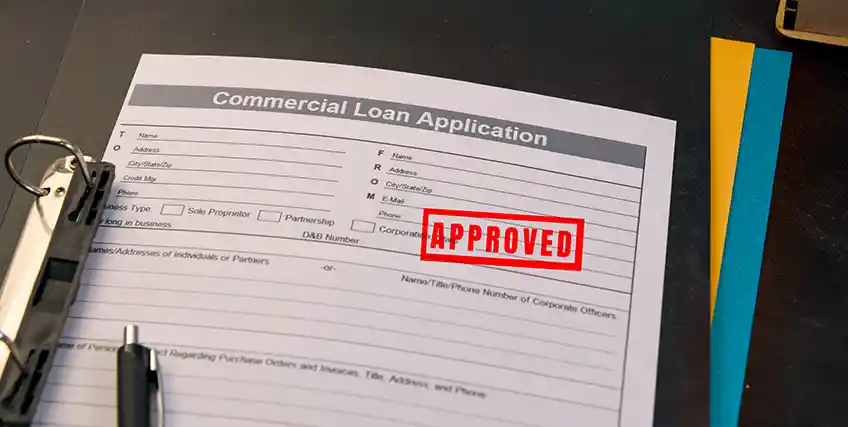AI Expense Trackers: How Smart Apps Are Detecting Fraud & Saving Small Businesses Thousands
September 1, 2025 | Last Updated on: September 1, 2025
Running a small business in America isn't cheap. Between payroll, inventory, and day-to-day operations, even minor leakages in expense management can add up fast. An ACFE report suggests that companies lose an average of 5% of revenue each year to fraud and mismanagement of business expense claims. For small business owners, that 5% can mean thousands gone without warning.
This is where technology is shifting the landscape. Over the last few years, AI-powered expense tracking tools have gained ground, quietly reshaping how expense reports are processed. Instead of relying on manual spreadsheets or sorting through piles of paper receipts, businesses now lean on apps that handle automated expense checks, flagging suspicious activity before it spirals into loss.
The best part is that these tools are becoming more affordable and user-friendly. Many integrate with popular accounting software like QuickBooks and FreshBooks, while offering features like receipt scanning, mobile app functionality, and real-time dashboards that simplify decision-making.
For many owners, the search often begins with one question: which is the best expense tracking app for small businesses? The right choice not only streamlines bookkeeping but also prevents reimbursement fraud, helps categorize expenses, and improves cash flow visibility.
Fraud detection once meant hiring extra staff or costly auditors. Now, AI-driven apps can do it in seconds, giving small businesses the same level of protection that larger corporations enjoy. That's why more and more entrepreneurs see expense tracking software not as a nice-to-have, but as a necessity.
Why Traditional Expense Management Falls Short
Plenty of small business owners still rely on spreadsheets, excel templates, or even paper receipts to track their expenses. On the surface, it feels cheap and simple. But the truth is, traditional expense management systems are often time-consuming, error-prone, and leave the door wide open for fraud. Missed receipts, duplicate reimbursements, or incorrectly categorized expenses are common problems that drain business cash flow quietly.
Manual systems also fail to keep pace with modern payment habits. Business owners now use corporate cards, mobile wallets, and multiple bank accounts. Trying to reconcile these manually across a spreadsheet takes hours. Worse, there's little chance of spotting unusual charges in real-time. A suspicious vendor payment or double-charged hotel bill might not surface until tax season, when it's too late to fix.
That's why many finance experts argue that upgrading to smarter tools is no longer optional. The best software to keep track of business expenses does more than record numbers. It categorizes expenses automatically, integrates with accounting software like QuickBooks Online or Xero, and provides real-time visibility into cash flow. Small mistakes that once slipped through the cracks are now flagged instantly.
So, when business owners ask what the best expense tracking app for small businesses looks like, the answer often comes down to automation. Without it, companies spend more hours on manual data entry, lose money to hidden errors, and miss out on valuable tax deductions
How AI Expense Trackers Work
So, how exactly does an AI-powered expense tracker transform the messy process of managing business expenses? It starts with automation. Instead of spending hours on manual data entry, these apps use optical character recognition (OCR) and machine learning to scan receipts, categorize expenses, and build expense reports in real-time. The shift isn't just about convenience; it's about accuracy and control.
Take receipt scanning. With a simple photo from a mobile app, a paper receipt is converted into structured expense data. No more losing slips of paper or relying on memory at tax time. These tools also integrate with accounting software like QuickBooks, FreshBooks, and Xero, ensuring all transactions flow directly into a centralized dashboard. That integration eliminates duplicate entries and creates a full picture of cash flow.
Fraud detection is another big win. AI trackers flag suspicious activity instantly. Whether it's a duplicate reimbursement claim, unusual charges on a corporate card, or out-of-policy spending, a good AI tracker would be able to spot it. For a small business owner, that can mean catching errors worth thousands before they balloon into real losses. Apps like Expensify, Zoho Expense, and SAP Concur already use these features to help businesses of all sizes.
Most importantly, these tools adapt over time. As the app processes more transactions, its machine learning models improve at recognizing patterns. That means better fraud detection, smarter categorization, and smoother expense management.
At the end of the day, the best expense tracking app for small business isn't just a record-keeper. It's an automated, cloud-based fraud prevention system designed to protect revenue while making life easier for business owners.
Benefits of AI Expense Trackers for Small Businesses
For most small business owners, expense management feels like a headache. AI-powered tools are rewriting that story, offering protection and simplicity in ways old methods never could. Here's what makes them so valuable:
1. Fraud Prevention
Fraud is a silent profit killer. AI expense tracker apps flag duplicate expense reports, questionable charges, and misuse of corporate cards almost instantly. A small retail shop, for example, might spot an employee submitting the same hotel receipt twice. Catching errors like these protects hard-earned revenue and keeps business expense tracking honest (ACFE).
2. Streamlined Expense Reports
Manual reporting is time-consuming. With AI, expense reports are created automatically through receipt scanning and integrations with QuickBooks or Xero. This means business owners don't have to waste hours reconciling spreadsheets. The best expense tracking app for small business turns what used to be a weekly chore into a simple dashboard review.
3. Better Cash Flow Control
Cash flow can make or break a small business. Real-time dashboards help owners track spending patterns, spot overspending, and adjust budgets quickly. For example, recurring travel expenses can be flagged before they spiral. That visibility empowers better decision-making, something every entrepreneur needs.
4. Tax Deductions Made Easier
Lost paper receipts equal lost tax savings. AI trackers store digital copies, categorize expenses properly, and make IRS reporting smoother. From mileage tracking to business lunches, deductions are easier to claim with expense data neatly organized. This isn't just convenience; it's money saved at tax time. However, it is advised to consult a tax professional before making any decisions.
Top Features to Look for in the Best Expense Tracking App for Small Business
Not all apps are created equal. While plenty claim to help, only a few truly deliver the functionality small business owners need. Here are the must-have features to keep in mind:
1. Receipt Scanning
Gone are the days of hoarding paper receipts. With a quick photo, the app stores digital copies, extracts expense data, and categorizes expenses automatically. This reduces errors and makes tax deductions easier. Tools like Expensify and Zoho Expense excel at receipt scanning and reimbursement workflows.
2. Integrations with Accounting Software
The best expense tracking app for small business should work seamlessly with QuickBooks Online, Xero, or FreshBooks. These integrations eliminate duplicate entries and streamline bookkeeping, giving owners a complete view of cash flow without extra manual data entry.
3. Mobile App Functionality
A modern expense tracker app needs strong mobile functionality. Whether on iOS or Android, owners should be able to approve expenses, scan receipts, and monitor dashboards in real-time. This flexibility makes life easier for startups, freelancers, and self-employed professionals on the go.
4. Approval Workflows
Managers can't be everywhere at once. Automated approval workflows allow expense reports to move through the right channels quickly. Real-time alerts flag out-of-policy spend, while team leads get a clear dashboard for decision-making.
5. Pricing & Free Plan Options
Cost matters. Some apps offer a free plan with lite features, while others scale with advanced functionality. Evaluating pricing alongside ease of use ensures small businesses get value without overpaying.
Comparing the Popular Expense Tracking App for Small Business Options in 2025
With so many apps on the market, it can be tough for business owners to pick the right one. Each platform has its strengths, pricing model, and integrations. Here's how some of the popular options stack up in 2025.
1. Expensify
Expensify remains one of the most recognizable names in expense tracking software. Known for its Expensify Card and automated receipt scanning, it's built to reduce manual data entry and speed up reimbursements. The app integrates with QuickBooks, Xero, and FreshBooks, making it a flexible choice for small businesses that want all-in-one functionality. Pricing scales depend on the number of users, which is a big plus for growing startups.
2. Zoho Expense
Zoho Expense is a popular expense tracker in the market, best suited for small business owners who want affordability without losing advanced features. With mileage tracking, policy enforcement, and cloud-based dashboards, Zoho is especially popular among freelancers and self-employed professionals. Its user-friendly interface and integration with accounting software make it easy to categorize expenses and streamline approval workflows.
3. QuickBooks Online
For businesses already using QuickBooks for accounting, its expense tracker app is a natural fit. The platform doubles as bookkeeping and business expense tracker for small businesses, with automated categorization, integrations across bank accounts, and tax deduction tools. It's an all-in-one solution that appeals to small business owners who want fewer moving parts to manage.
4. FreshBooks
FreshBooks is more than invoicing; it's also a strong contender as the best expense tracking app for small business. Its mobile app allows receipt uploads, mileage tracking, and real-time reporting. Combined with project management tools and time tracking, FreshBooks is a good fit for freelancers or service-driven businesses that bill clients for expenses.
Common Concerns Small Business Owners Have About AI Expense Trackers
Even with all the buzz around AI, small business owners sometimes hesitate before switching from spreadsheets to an expense tracking app. The worries aren't always unfounded, but most can be addressed with a closer look.
One common concern is data security. Owners worry that putting sensitive financial information into a cloud-based system could expose them to hacks or breaches. It's a fair point. But most leading providers, including those considered the best expense tracking app for small business, now use bank-level encryption and multi-factor authentication to protect expense data.
Pricing is another sticking point. Some wonder if the cost outweighs the benefit. But when comparing a free plan against a premium package, the difference often comes down to efficiency and fraud prevention. Missing tax deductions or paying duplicate reimbursements can cost far more than the subscription fee for apps like Expensify, Zoho Expense, or QuickBooks Online.
Ease of use also ranks high on the list. Employees sometimes push back against new technology, especially if the interface feels complicated. Most of today's expense tracker apps are designed with a clean user interface and mobile app functionality for both iOS and Android. That means less training time and smoother adoption.
In short, the best expense tracking app for small business isn't perfect, but the concerns are often smaller than the risks of sticking with outdated, manual expense management systems.
How to Choose the Best Expense Tracking App for Small Business
Choosing the right expense tracker isn't about finding the flashiest app. It's about finding what fits your business. Small business owners have different needs depending on their size, industry, and budget, so a checklist approach works best.
First, evaluate pricing. Many apps offer a free plan with limited functionality, while paid tiers include advanced features like automated categorization, approval workflows, and integrations with accounting software. Paying for the right tier often saves money in the long run by preventing reimbursement fraud and streamlining cash flow management.
Second, look at integrations. The best expense tracking app for small business should connect with your existing tools, such as QuickBooks Online, FreshBooks, Xero, or even project management software. Integrations reduce manual data entry, keep expense reports accurate, and give you real-time insights through a single dashboard.
Ease of use is another major factor. A clean user interface, simple mobile app functionality (on both iOS and Android), and quick receipt scanning are non-negotiable. If an app takes too much training, adoption among employees will be low.
Also, consider whether the software helps with compliance. Apps like Zoho Expense and SAP Concur offer mileage tracking, IRS-friendly categorization, and easy retrieval of digital receipts—all important when preparing for tax season.
Ultimately, the decision often comes down to functionality versus budget. For some startups, the best app for small business expenses may be a lite version with just the basics. For others, investing in a cloud-based all-in-one expense tracker app with automated fraud detection is well worth it.
You may also like: Best Way to Track Business Expenses Before You Apply
Conclusion
For small business owners, expense management has always been one of those tasks that feels more like a drain than a value adds. But with AI-powered tools stepping in, that equation is changing fast. These apps don't just handle expense reports; they flag fraud, automate reimbursement, and give owners a real-time view of cash flow.
When weighing options, remember this: the best expense tracking app for small business isn't just about recording numbers. It's about protecting revenue, simplifying tax deductions, and making smarter financial decisions. For startups, freelancers, and established companies alike, AI expense tracking is no longer a luxury. It's becoming essential.
FAQs About AI Expense Trackers for Small Businesses
1. What is the ideal expense tracking app for small businesses in 2025?
The best expense tracking app for small business depends on your needs. Options like Expensify, QuickBooks Online, FreshBooks, and Zoho Expense stand out. They offer features such as receipt scanning, mileage tracking, approval workflows, and integrations with accounting software.
2. Is the best expense tracker for small business affordable?
Many platforms provide a free plan with lite features, while paid versions unlock advanced tools like automated categorization, fraud alerts, and project management integrations. The best expense tracker for small business balances affordability with functionality. In most cases, the savings from fraud prevention and tax deductions outweigh the subscription cost.
3. How does AI detect fraud in expense tracking apps?
AI expense tracking software uses real-time data analysis, machine learning, and receipt scanning to flag suspicious transactions. Duplicate reimbursements, out-of-policy spending, or unusual vendor charges are quickly identified. This makes the best expense tracking app for small business a fraud-prevention tool as much as a bookkeeping aid.
4. Why is AI better than the best software to keep track of business expenses manually?
Traditional methods like spreadsheets or Excel templates are time-consuming and prone to error. The best software to keep track of business expenses automates categorization, integrates with QuickBooks or Xero, and creates accurate dashboards instantly. AI tools cut out manual data entry, save time, and reduce costly mistakes.
5. Can the best app for small business expenses integrate with accounting tools?
The best app for small business expenses typically integrates with QuickBooks Online, FreshBooks, and Xero. These integrations sync bank accounts, streamline bookkeeping, and ensure every business expense is categorized correctly for cash flow tracking and IRS compliance.
Frequent searches leading to this page
Term Loans are made by Itria Ventures LLC or Cross River Bank, Member FDIC. This is not a deposit product. California residents: Itria Ventures LLC is licensed by the Department of Financial Protection and Innovation. Loans are made or arranged pursuant to California Financing Law License # 60DBO-35839




